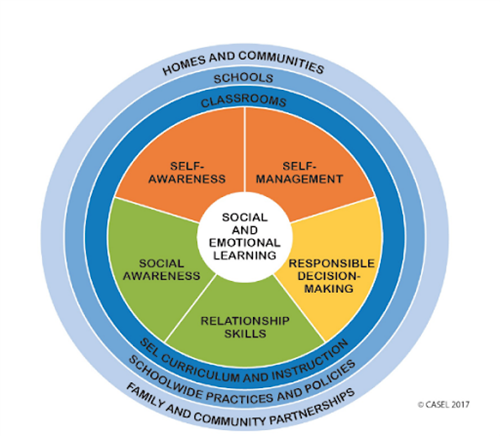- Jackson Township 5-6 School
- Curriculum
-
Social Emotional Learning
-
Social Emotional Learning (SEL)
SEL is the process through which children and adults understand and manage emotions, set and achieve positive goals, feel and show empathy for others, establish and maintain positive relationships, and make responsible decisions.
SEL is embedded by design into the Jackson School District's curriculum and instruction. Through the support of CASEL (Collaboration for Academic Social and Emotional Learning) and Responsive Classroom approaches, our schools and staff utilize a number of methods to encourage social emotional health and abilities in our students.
HMH
enVisionMATH
EnvisionMATH is a core curriculum for students in kindergarten through grade 6. The program seeks to help students develop an understanding of math concepts through problem-based instruction, small-group interaction, and visual learning with a focus on reasoning and modeling. Differentiated instruction and ongoing assessment are used to meet the needs of students at all ability levels.
-


